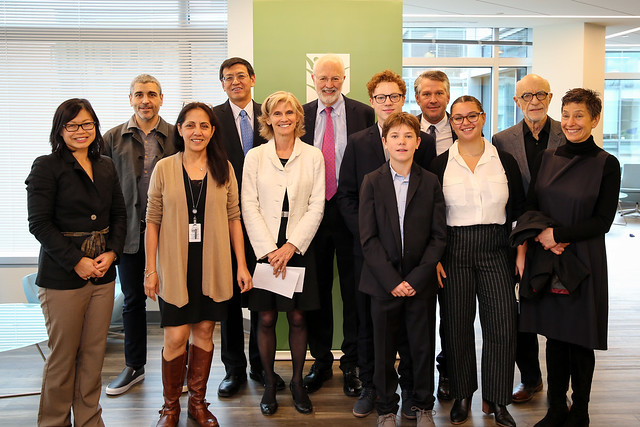Keynote Speaker
- Barry M. Popkin, W. R. Kenan Jr. Distinguished Professor of nutrition, UNC Gillings School of Global Public Health (Presentation | Video)
Chair
- Shenggen Fan, Director General, IFPRI (Video)
Remarks
-
Kenan Forman, son of Dr. Martin J. Forman (Video)
-
Elaine Gray, Nutrition Advisor, USAID (Video)
Moderator
- Marie Ruel, Director of Poverty, Health and Nutrition Division, IFPRI
- Q&A Video
The International Food Policy Research Institute (IFPRI) is pleased to host the 28th Annual Martin J. Forman Memorial Lecture. The Annual Lecture commemorates the significant impact on international nutrition by Martin J. Forman, who headed the Office of Nutrition at USAID for more than 20 years. The annual lecturer is invited to present his or her personal, often unconventional, views about large issues dealing with malnutrition.
Over recent decades, as global food systems have changed rapidly, so has the face of malnutrition. Obesity and the double burden of malnutrition have risen dramatically, particularly in low- and middle-income countries. Many of these countries are using fiscal and regulatory tools to address these issues, with little evidence on their effectiveness.
This lecture will discuss findings from our evaluations of these public health efforts around the world. Some surprising new results—including impressive findings on the impact of marketing and front-of-the-package profiling options—may shift the focus of our actions. However, we still have much to learn about what works and how we can sustain dietary improvements. To date, no country has successfully arrested or even slowed the rise in overweight and obesity. Our challenge is assembling a set of effective programs and policies to address the new face of malnutrition.




